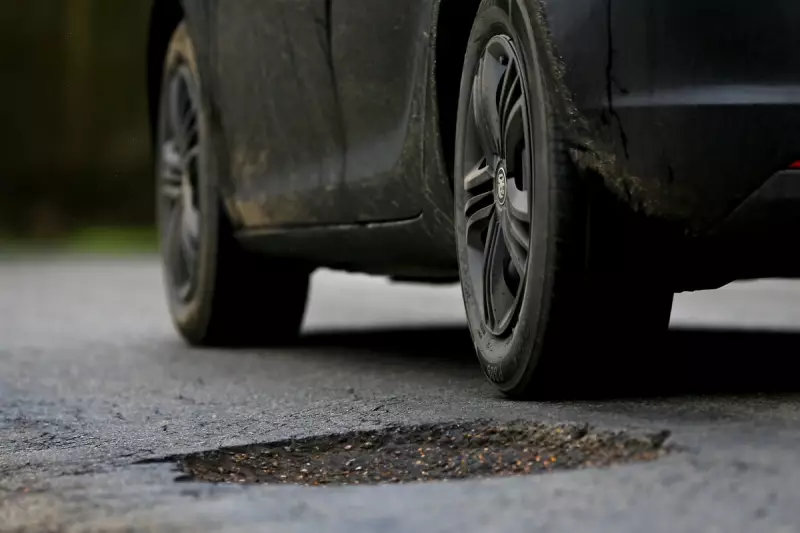
Britain's pothole crisis has reached breaking point, with new analysis revealing drivers are now 1.5 times more likely to break down due to road defects than just two years ago. The alarming figures from the RAC paint a picture of a nation's infrastructure in steep decline.
The Rising Toll on Motorists
The motoring organisation attended an astonishing 30,000 pothole-related breakdowns in 2023 alone – a staggering 33% increase from 2022. These weren't minor inconveniences but serious incidents involving damaged shock absorbers, broken suspension springs, and distorted wheels.
"These numbers are nothing short of horrific," stated RAC head of policy Simon Williams. "They show our roads are in a desperate state and clearly demonstrate the scale of the challenge facing local authorities."
The £16.3 Billion Backlog
Meanwhile, the Local Government Association delivered equally grim news: councils face a massive £16.3 billion backlog of road repairs that would take them 16 years to complete at current rates. The situation has become so dire that some authorities are now focusing solely on emergency repairs rather than preventative maintenance.
A Perfect Storm of Challenges
Several factors have converged to create this crisis:
- Funding shortfalls: Councils report needing 10 times their current budget to properly address the problem
- Weather extremes: Recent cold winters followed by wet weather have accelerated road surface deterioration
- Rising costs: Inflation has pushed material and labour expenses significantly higher
- Increased traffic: Growing vehicle numbers place additional strain on already compromised surfaces
The Human and Economic Impact
Beyond the statistics lies the real impact on British motorists. Thousands face expensive repair bills, potential safety hazards, and daily frustration navigating obstacle-course-like roads. The RAC's findings suggest the situation is deteriorating rapidly rather than improving.
With councils trapped between insufficient funding and growing problems, and motorists paying the price through vehicle damage, the call for a fundamental rethink of how Britain maintains its road network has never been louder.





